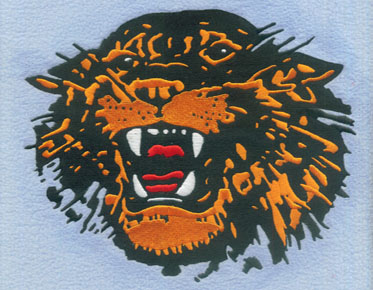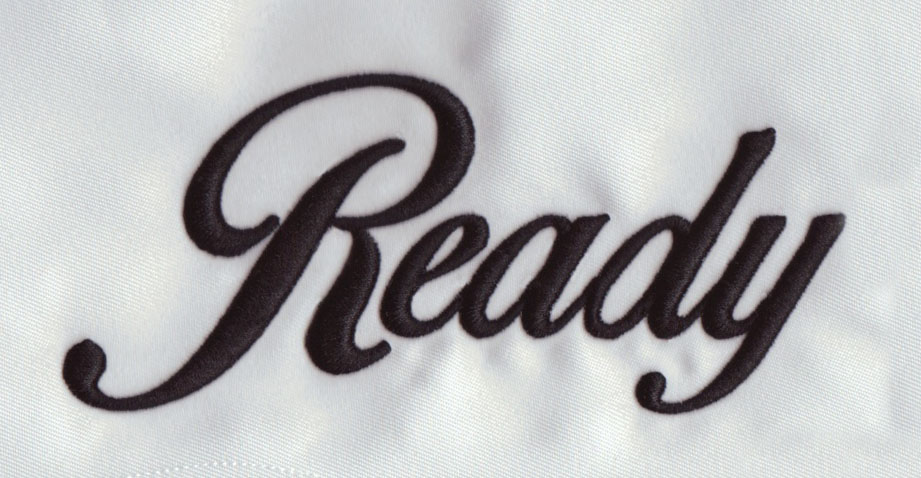Digitizing Your Company's Logo for Embroidery
Your company's logo is the visual cornerstone of your brand identity. It's the symbol that customers recognize, trust, and associate with your products or services. When it comes to promoting your brand on clothing and textiles, especially through embroidery, digitalizing your logo is a crucial step. In this blog, we'll explore what logo digitization for embroidery entails, why it's essential, and how to get it done effectively.
Understanding Logo Digitization for Embroidery
Logo digitization for embroidery is the process of converting your logo's design into a format that can be read and executed by computerized embroidery machines. Unlike digital images used for web or print, embroidery machines require a different file format that provides specific instructions for each stitch.
Here's how the process generally works:
1. Image to Vector Conversion:
The first step involves converting your logo from a standard image format (e.g., JPEG or PNG) into a vector format (e.g., AI, EPS, or SVG). Vector files are essential because they define shapes through mathematical equations, allowing for infinite scalability without loss of quality.
2. Digitizing Software:
A skilled digitizer uses specialized embroidery digitizing software to input the vector version of your logo. This software enables them to define stitch types, colors, densities, and sequences to create an embroidery-friendly version of your logo.
3. Stitch Types and Colors:
The digitizer carefully selects the appropriate stitch types for various parts of your logo and assigns thread colors that match your brand's color palette.
4. Setting Parameters:
Parameters like stitch length and density are fine-tuned to ensure the best quality embroidery while maintaining the design's integrity.
5. Generating the Embroidery File:
Once the digitizer is satisfied with the settings, the software generates an embroidery file (e.g., .DST or .PES). This file contains the precise instructions for the embroidery machine to follow.
6. Machine Embroidery:
The digitized file is transferred to the embroidery machine, which reads the instructions and guides the needle and thread to create your logo on fabric or other materials.
Why Logo Digitization is Essential
1. Quality Control: Logo digitization allows for precise control over the embroidery process, ensuring that your logo looks crisp and professional on every item.
2. Consistency: Digitized logos ensure that every embroidered piece, whether it's a uniform, hat, or bag, is consistent in appearance, reinforcing your brand's image.
3. Scalability: Once your logo is digitized, it can be resized as needed for different applications without losing quality.
4. Customization: Digitized logos can be easily customized to suit various fabric types, colors, and garment sizes.
5. Cost Efficiency: While there's an initial cost for digitizing, once it's done, reproducing your logo on multiple items is cost-effective, making it ideal for bulk orders.
Getting Your Logo Digitized
To get your logo digitized for embroidery, follow these steps:
● Find a Professional Digitizer: Look for an experienced embroidery digitizing service or a graphic designer with expertise in logo digitization.
● Provide High-Quality Artwork: Supply the digitizer with the highest quality version of your logo, preferably in a vector format. Clear and detailed artwork ensures the best results.
● Discuss Your Needs: Communicate your specific requirements with the digitizer, including the type of fabric or material you'll be embroidering on and any color preferences.
● Review and Approve: Once the digitizer completes the digitization process, review the sample and provide feedback if necessary. Ensure that you're satisfied with the look and feel of the embroidered logo.
● Save the Digitized File: Keep a copy of the digitized file for future use. You may also want to store it with your preferred embroidery service provider for future orders.
Conclusion
Digitalizing your company's logo for embroidery is a crucial step to ensure brand consistency, quality, and versatility. Whether you're looking to embroider employee uniforms, promotional items, or merchandise, a well-digitized logo will make your brand stand out. By understanding the process and working with skilled professionals, you can bring your logo to life in the world of embroidery, leaving a lasting impression on your customers.



